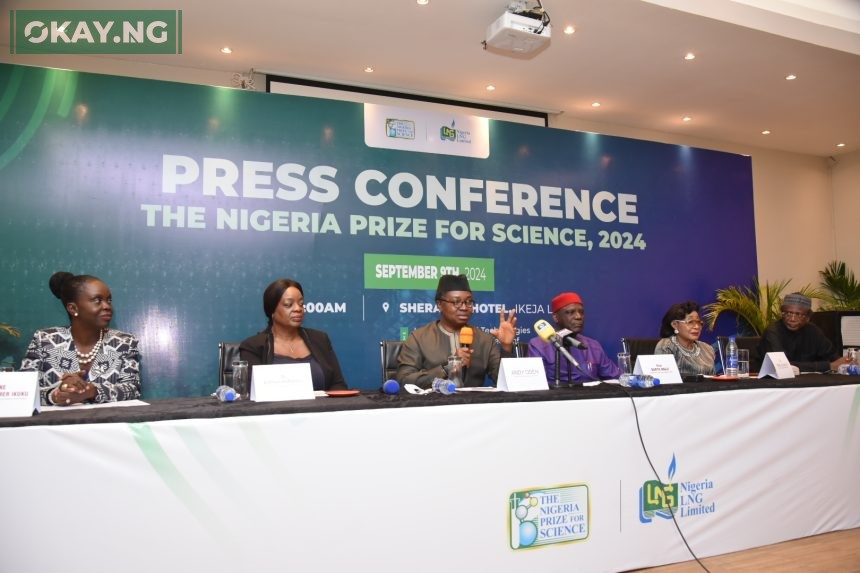The Advisory Board of The Nigeria Prize for Science has announced Eni Oko, Olajide Otitoju, and Meihong Wang as the winners of the 2024 edition of the prestigious prize for their groundbreaking work on “Process Intensification Technology for Greenhouse Emission Control in Power Generation and Industry for Sustainable Fuel Production (PIC-FUEL).”
The trio was recognized for their innovative approach to reducing harmful emissions while promoting the production of cleaner, sustainable fuels.
This announcement, made at a press conference on Monday, underscores the significance of this year’s competition theme: “Innovations and Technologies for Reducing the Effect of Climate Change.”
According to Professor Barth Nnaji, Chairman of the Advisory Board, the PIC-FUEL technology has the potential to significantly cut emissions from power plants and industrial sectors such as cement factories and refineries.
“This innovation can capture CO2 emissions and convert them into methanol, which can be blended with diesel or sold as a product, reducing emissions by up to 40%,” Nnaji said.
Eni Oko, a Senior Lecturer in Chemical Engineering at Newcastle University, UK, Olajide Otitoju, a Research Associate at the University of Sheffield, UK, and Meihong Wang, a Professor of Process and Energy Systems Engineering at the University of Sheffield, UK, spearheaded the PIC-FUEL project.
Wang, who specializes in Carbon Capture, Utilization, and Storage (CCUS), is a two-time winner of the Nigeria Prize for Science, having previously won in 2019 for his work on carbon capture and energy storage.
The PIC-FUEL technology works by capturing CO2 emissions directly from industrial sources using a Rotating Packed Bed (RPB).
The captured emissions are then absorbed using a solvent, and through a reaction with hydrogen in an electrolyser, the CO2 is converted into methanol. This methanol can be blended with diesel, contributing to the decarbonization of transportation and power generation sectors.
“This approach offers both environmental and economic benefits,” Nnaji explained. “Not only does it reduce the need for expensive government subsidies to meet Nigeria’s net-zero goals by 2060, but it also strengthens the local economy by reducing reliance on imported diesel. With the implementation of this technology, Nigeria could save up to $500 million annually in foreign exchange.”
The Advisory Board highlighted the potential of PIC-FUEL to transform Nigeria’s energy landscape, reducing the cost of cutting emissions by 30-40%, which could translate to savings of $120-140 billion in the national budget for the Nigerian Energy Transition Plan.
The technology could also play a significant role in achieving the country’s 2060 net-zero target.
Proof of the PIC-FUEL concept has already been established in the UK and Norway, signaling the potential for rapid deployment in Nigeria.
Mr. Andy Odeh, NLNG’s General Manager of External Relations and Sustainable Development, praised the winners for their contributions to both science and Nigeria’s future.
He also commended The Nigeria Prize for Science for its impact on scientific and literary development over the past 20 years.
A panel of distinguished judges, including Professors Francisca Nneka Okeke, Saminu Abdulrahman Ibrahim, and Grace Oloukoi, selected this year’s winners. Other Advisory Board members include Chief Dr. Nike Akande and Professor Yusuf Abubakar.
The Nigeria Prize for Science continues to celebrate and promote innovations that address critical challenges facing the nation, with this year’s winners offering a transformative solution for both Nigeria’s environment and economy.












